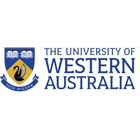Master of Environmental Science – Environmental Management
Master of Environmental Science – Environmental Management
The course seeks to create sought after professionals who have the knowledge and practical skills to manage and solve environmental challenges, from local to global, now and into the future. Tap into UWA’s long history of multidisciplinary research into environmental systems, and benefit from our unique experience in identifying innovative…
Categories
COURSE DESCRIPTION
The course seeks to create sought after professionals who have the knowledge and practical skills to manage and solve environmental challenges, from local to global, now and into the future. Tap into UWA’s long history of multidisciplinary research into environmental systems, and benefit from our unique experience in identifying innovative technology and policy based solutions.
The course is highly inter-disciplinary, providing students with a rigorous understanding of environmental processes, in parallel to studies in environmental policy and management approaches. Throughout the course students gain important skills in data analysis and interpretation, lab and field methods, plus GIS and remote sensing.
Specialisations: • Catchments and Water • Environmental Rehabilitation • Environmental Economics • Environmental Management • Marine and Coastal Management • Sensing and Spatial Data Science
Course options
The course is comprised of two core units, and a choice of a sequence of six specialisation core units which are unique to our five specialisations. Students can choose a dissertation option, or our Environmental Science in Practice professional training units.
Why study Environmental Science?
The scope and scale of pressures on our terrestrial and aquatic environments requires interdisciplinary and innovative solutions to support sustainable development.
You will gain in-depth knowledge of physical, chemical and ecological processes on local and regional scales, gaining advanced skills in the monitoring and assessment of environmental systems using field, laboratory, modelling and statistical techniques.
Our graduates are exposed to diverse environmental settings and have hands-on opportunities to apply their knowledge and skills to a diversity of real-world environmental issues.
You will develop the necessary professional skills to facilitate and guide government agencies and private companies to develop sustainable outcomes.
Career Pathways
Graduates from the Master of Environmental Science find employment in a range of areas including environmental consulting firms, Commonwealth and state agencies responsible for the environment, water, conservation, agriculture and food, and primary industries. Other employers are private sector firms working in the resources sector and non-government organisations. Our specialisations have been designed in consultation with the industry to ensure graduates are highly competent and sought-after in their chosen field. One of the fastest growing areas of demand within the environmental sciences is for professionals with expertise in Geographical Information Science and how this can be applied to support environmental management.
Further Study
Students completing this degree may have the option to pursue further studies in research. Find out about our world-class research at UWA Science Global.
REQUIREMENTS
(1) To be considered for admission to this course an applicant must have—(a) a bachelor’s degree, or equivalent as recognised by UWA; and(b) the equivalent of a UWA weighted average mark of at least 50 per cent; and(c) met the prerequisite for the chosen specialisation(2) For the Environmental Management or Environmental Economics specialisations an applicant must have completed prior studies at a tertiary level in either science, engineering, economics, natural resource management, urban and regional planning, or policy studies; or a related cognate discipline, as recognised by UWA(3) For the Catchments and Water or Environmental Rehabilitation or Sensing and Data Science specialisations an applicant must have completed prior studies at a tertiary level in either earth, environmental, engineering, biological or physical sciences; or a related cognate discipline, as recognised by UWA(4) For the Marine and Coastal specialisation an applicant must have completed prior studies at a tertiary level in either marine, environmental, engineering, biological or physical sciences; or a related cognate discipline, as recognised by UWA
English language requirements:
TOEFL (paper-based): 570 with a Test of Written English (TWE) of no less than 4.5
IBT TOEFL (Internet-based test score): 82 with 22 for writing, 20 for speaking, 20 for listening, and 18 for reading
IELTS (Academic): 6.5 (no band lower than 6.0)
Cambridge Certificate of Proficiency in English: C pass
Cambridge Certificate in Advanced English: B grade
Pearson Test of English (PTE) (Academic): Overall score of 64 with a minimum score of 64 in the Reading and Writing sections, 59 in the Speaking section and 54 in the Listening section
EDUCATIONAL INSTITUTION
The University of Western Australia (UWA) is a proud member of the Group of Eight and is the only university in Western Australia to be ranked in the world top 100 universities (QS World University Rankings 2023).UWA’s main campus is located in Perth, Western Australia and is home to more than 23,000 students. Perth is Australia’s fourth-largest city with over two million people from a variety of cultures worldwide, a strong economy and vibrant lifestyle. Perth is one of the country’s most affordable cities, the closest major Australian city to Asia, and in the same time zone as most of Asia.




